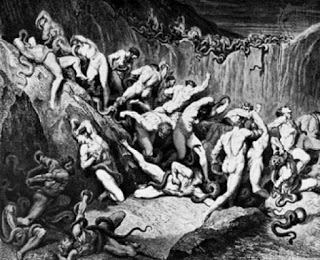
I think there come times in a life when regrets and fears have to be faced, acknowledged, owned. And, once owned, sifted, weighed. What regrets and fears are follies or the result of follies–and so rightly censured? What regrets and fears are miseries–and so rightly pitied, even in oneself?
I have been driving westward, away from the morning, my interstate journey mirroring my existential one, as I move ‘westward’, away from my birth. Closer to maker than mother, as Lloyd Cole once memorably more or less put it. I wanted time, but even more, I wanted space in which to come to grips with myself, to not just know but to believe myself 51. The lush claustrophobia of Alabama has yielded to the barren agoraphobia of the high desert, of Montana and New Mexico. There is space here to turn around yourself, maybe enough to see your back parts as you pass, assuming you have the stomach for it.
I’m in Taos for a couple of days, then I slip down to Sante Fe. A couple of days there and I begin the trek home. Eastward and ‘eastward’: can a man be born when he is 51?
At 51? Yes, and again at 52, 53, 54 . . . The trip is continuous.
I fear so. Oh, well, try to keep the car in good repair.
Reblogged this on Mists on the Riverss.
I think I can empathize, except that the journey I just took was from Korea to San Diego: eastward rather than westward, and toward the home in which I grew up instead of away from it. But though the geography of the journey was different, it’s left me with a similar sense of greater distance from the time and context of my birth. Every time I return to SD (every 4-5 months), I can see the effects of aging on my father (who is 83) more and more: this time, in his difficulty making his way from here to there and his consequent need for a walker, for which he didn’t have any need when I saw him in February. Progressively, he becomes less the man I remember from my youth, and our house becomes less the house in which I was young.
I’m too Spinozistic, though, to feel comfortable saying that this ever increasing distance from mother brings me closer to maker – at least, if this implies that the maker is anything other than something that is always infinitely proximate, not only in everything I encounter in the world but in everything that manifests itself in me. This perpetual and infinite proximity is part of what Spinoza has in mind when he identifies God with Nature.
However, if what you have in mind is coming closer to fully *acknowledging* maker and my relation to it, then I can recognize this in the current flow of my thoughts. To refer back to Spinoza, part of what I think he means by the love of God is the acknowledgment of my inescapable dependence on and vulnerability to God, which, since God is Nature, is, at least in part, the acknowledgment of our own finitude: for example, of our mortality, and the changeability of life over time under the influence of a changeable world.
You mentioned regret at the start. I would say that those regrets are a misery in which my regret is blind to the lostness of the past. Some things can’t be remedied, and our own past suffering or foolishness is instructive only insofar as it bears upon that things that can. A regret that longs to retrieve what has been lost in this way – to remedy what can’t be remedied – is a regret that isn’t worth having. Ridding ourselves of such regret (or better: *absolving* ourselves of it) is part of what’s involved in recognizing our own finitude, our dependence on and vulnerability to Nature. And this is because one of our vulnerabilities is that we cannot always avoid what is bad – because we lack some power, some knowledge of the world or of ourselves, some skillfulness in the game of living a human life. And one of our dependencies is our dependence on the flow of time – in particular, the irreversibility in virtue of which the past can’t be changed.
Thanks for this thoughtful and insightful comment, Mandel. I agree–non-Spinozistically, of course–with almost all of it. I particularly agree that we have to acknowledge the “lostness of the past” and that regret is to be indulged for the sake of the present and future, if it is to be indulged at all.